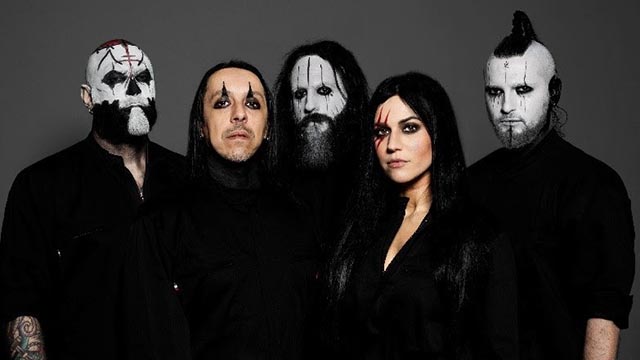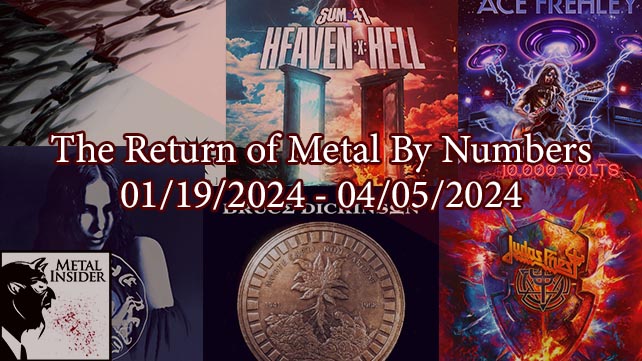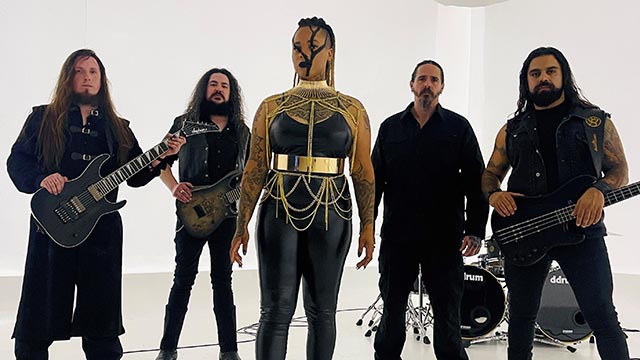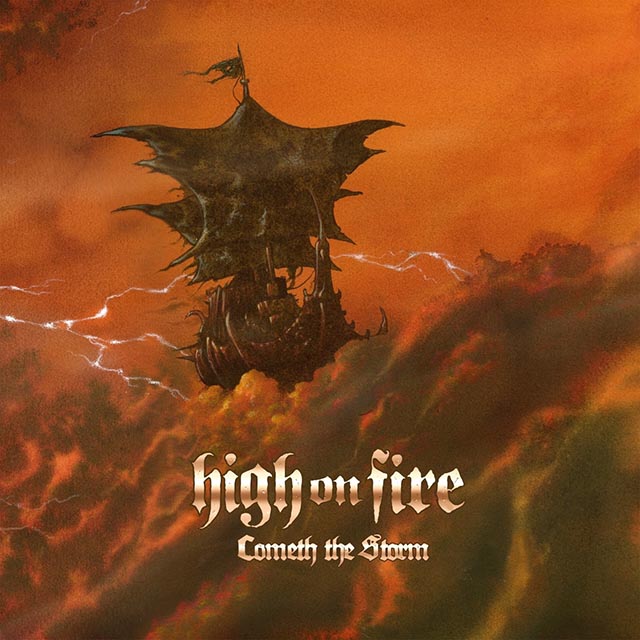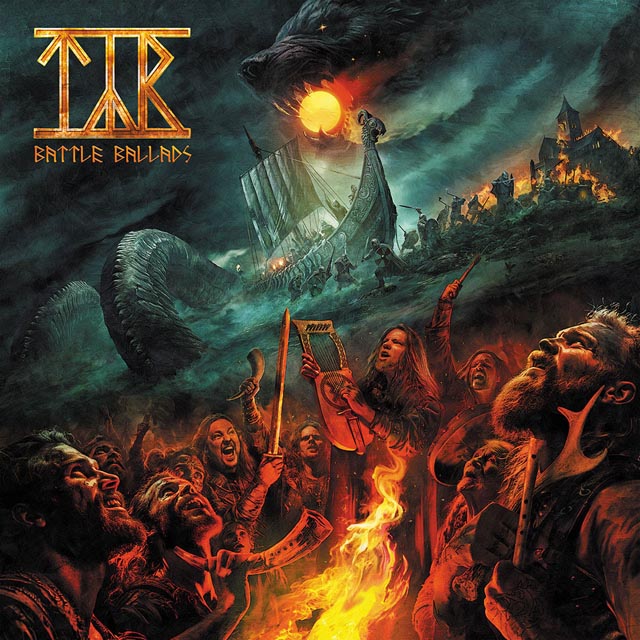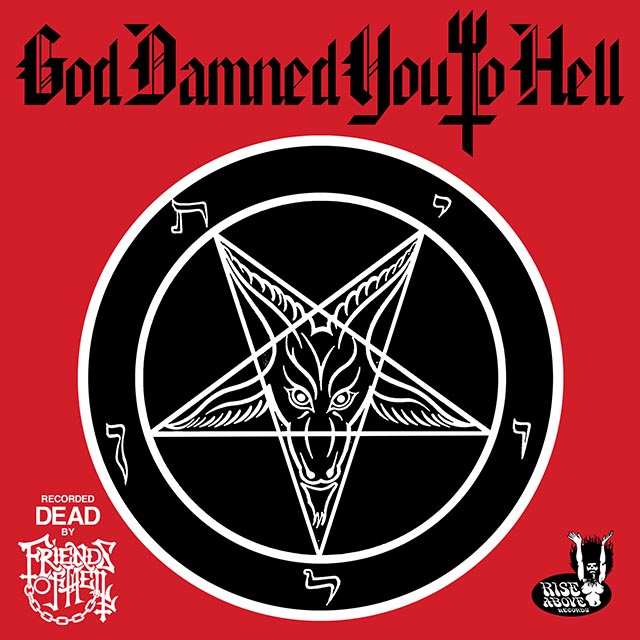
In 1990 as a teenager, Matt Jacobson founded Relapse Records, which has grown to be one of the biggest and best independent metal labels in the country. While he’s still the President of the label, he has other interests, and since moving to Portland, OR in 2007, wound up opening a pizza store, Sizzle Pie. With the slogan “Death to False Pizza” and pies including names like “Napalm Breath,” “Pig Destroyer” and “Rad Wings of Destiny,” Jacobson’s metal sensibility certainly carries over to his other venture, and it’s since expanded to Eugene, OR, as well as Seattle and just recently, the east coast, in one of three Brooklyn locations. After visiting the newest store, we caught up with Jacobson about his entrepreneurial spirit, what a record label and pizza have in common, and what let him to open in New York.
How did you wind up in Portland?
At a certain point, the music industry was changing a lot and while I learned a ton with Relapse, and of course music is one of the major passions in my life, I was interested in doing other things also. I realized at a certain point I had never chosen where I lived, I just ended up by circumstance in various places. So I decided I was going to choose to live, so I started investigating. Portland kept rising up in that process and in 2007 I moved to Portland, Oregon. I’d been thinking about all these different things I had been interested in doing and I generally can only do things that I love and that I’m passionate about. So I was introduced to a gentleman who became a friend and we started talking about doing a bar or doing something that could involve music and beer and one thing led to another and we honed in on pizza.
We thought, ‘We love Portland and it has so many awesome things but why does everything close so early? There’s a shortage of late night options and wouldn’t it be great if there was a New York or East Coast type slice shop that was open late, and what if it was a little bit rock n’ roll with a great beer selection?’ so we decided to do that. We naively signed a lease once a good location popped up thinking, ‘We’re experienced business guys, we’ll get a loan,’ but that was in 2007 so the economic environment was a very poor one. We ended up paying rent out of our pocket for about 18 months as we scrambled together the resources to fix the plumbing and electric and rebuild the floors and build all the infrastructure that we needed to open a pizza shop. On January 1st of 2011 the first Sizzle Pie opened up on East Burnside in Portland Oregon and was pretty well received right away. Not only from our late night hours and beer selection, but we really tried to make some really delicious food and in some ways were trying to emulate the New York and East Coast places that I had grown up with. Also, we wanted to mash that up with East Coast meets West Coast so the classics and the general style and approach of the East Coast stuff but with some of the sensibilities and variety and options of the West Coast.
How long did it take for you to start thinking about opening an East Coast location?
After we were open for six months I noticed there was a space for lease directly across the street from Powell’s Books in downtown Portland. It had been a pizza place for 17 years, a pretty crappy one, but we had only been open for six months and we hadn’t even ever talked about doing more than one location, but when faced with this opportunity to open up in this kind of iconic location, it’s a triangle building on a triangle block, caddy corner from one of the biggest tourist destinations in the region and it’s probably one of the busiest pedestrian corners in the city, we were like, ‘Wow, we gotta try.’ We still had no money, no bank financing, and had barely been open six months, but we convinced the landlord to take the risk on us and six months later we opened our second location and I guess that’s really what got the ball rolling. It got us thinking, ‘Geez, let’s think about some other things.’
A little while later we had an opportunity. I was visiting Eugene, Oregon on an unrelated business trip for a different business and ended up in the downtown area. I’d never even been to Eugene before that trip and was just thinking, ‘Wow, everything seems like it’s changing here’ and it seemed like there was an opportunity. Downtown had kind of been a dead pedestrian area for like 20 years from what I’ve been told but it was in the process of changing and we decided to think about opening up down here because we can dip our toes in remote operations. If we can make this work in a place that’s a 2 hour and 10 minute drive away, maybe it can work further away, so we dove in and opened up the Eugene location, which until very, very recently, turned out to be our highest volume location. After that we took the next logical step, expanding to Seattle, and we decided if we could make it work in Seattle, we’re going to go to New York and here we are.
There’s going be more than one location in New York, correct?
Yeah, now there is. Funny enough, we signed a lease for a location we liked 8 months ago in the Bushwick area knowing it would take a long time to get it going, but we’re not really in a rush. The spot that we selected had been zoned industrial and that whole area is going through a transformation so he was waiting to have a tenant in place before he started the process of transitioning of industrial to commercial zoning. We knew the lease would take a while and we’ve been waiting for that whole process and we wind ourselves with some good people in New York. We saw the opportunity and we jumped on it which led to the location on Graham and the same thing happened very shortly after with the location on Bedford, so indeed we have a second location looking like it’s going to open sometime in March. I was thinking early March, but it’s looking more like mid to late March. We’re shooting for the 20th right now but those dates always flex and change.
So that’s three locations?
Yes, we’re going to have three locations by summertime.
How many total will that bring it to?
Good question let me think. We have three in Portland, one in Eugene, one in Seattle. When the third one opens there it’ll bring it to eight, not including our sports arena location here at the Moda Center where the Trailblazers play. We had two stands. We were invited there by the Trailblazers, which was amazing because you normally have to pay to get into those places, and they actually invited us to open and paid for all of our build out. We opened two stands, I believe three seasons ago, and this last season they asked us to open a third one, so it’s kind of hard to count those. Also one of our Portland locations is kind of a smaller footprint, it’s just a small slice case with a joint walk up area with this other great multi-location restaurant here called Pine State Biscuits. We primarily use it as our delivery kitchen.

Do you see an end? Is there a limit or a point where you say ‘That’s enough?’
Probably not. I think that we’re very ambitious and we’re excited about what we’re doing. It seems like people dig our concept and the food and we also have always from the beginning been connected to community in numerous ways. The music community, the art community on a global scale kind of, as well as the local community. We sponsor pizza parties and provide food for non-profits and volunteers of non-profits. I’ll provide or donate gift cards to lots of organizations that are doing raffles and fundraisers. Today I got an email from Aaron Beam from Red Fang who’s kid’s school is doing a fundraiser and wondering if we’d donate some gift cards for their raffle so they can raise some money. We do that kind of thing all the time. I think there are an almost endless number of places that Sizzle Pie could work and would make sense. We’re really just trying to find the right balance of growth.
Are there any cities on your radar that might be the next one?
Yeah, the next one, this calendar year we’re planning on opening a location in Reno, Nevada.
That seems random.
I think a lot of people will see it that way, but I think a lot of people would have scratched their heads at Eugene, Oregon as well and it turned out to be our highest volume location until just recently. Our downtown spot across from Powell’s, you know when we first opened it, we didn’t have enough capital so we leased the whole building but we only opened what we call “the pizza side” because the previous operator had pizza on one side and a bar on the other. Just over a year ago we opened the bar side so now the collective volume there, the additional pizza sales and drink sales from the bar side have helped that location become our highest volume spot. I anticipate a market like Reno is going to do really well for us because I think Eugene and Reno are similar in that they are underserved markets there. They’re kind of smaller cities and they are hungry for contemporary offerings and I think the landscape is such that there’s a lot of room for someone to do something fresh and something like what we’re doing.
From the kinds of pizza you have there’s definitely a metal connection. How else is metal connected to Sizzle Pie other than the fact that you own Relapse?
I think that we give a lot of pizzas to bands passing through towns. There are a lot of people in the music scene that are vegan or vegetarian or a lot of people who just like pizza in general. There’s a great crossover with the art scene; there are a lot of people that are into art that are into music and vice versa and then on top of it because of who we are and what we do, we end up attracting a lot of employees that are really into music. A lot of people that work for us are in bands or are just big fans of music so I feel like the music connection is just throughout really.
Is everything the same everywhere, or do you switch it up with each location?
It’s largely the same in that we are striving for a level of consistency so people know what to expect and get what they’re looking for, but I think there are subtle differences. We will often work with different local companies, whether it’s toppings or if it’s other elements of our operation. I think it’s important to note we make all of our sauce and dough from scratch on site everyday at every location, even at the sports arena. One of the things that makes us a little bit different is we don’t just have our house red sauce. We also have six other sauces including a basil cashew spread and a vodka cream sauce and those kinds of things. We’ll work with local companies, different local distilleries, different local hot sauce companies or different purveyors for different things. I think eventually you may end up seeing distinct menu items, but right now the menu is broadly the same, although we do have specials that are different everywhere, everyday.
You brought on David Castillo from Saint Vitus in New York. What made you decide to work with him and do you have people like that at every market?
I would say that he’s essentially a brand ambassador for us, someone to help spread the word. When we first started here in Portland, it was my partner and I, and our organic or natural connections to music and art and local community that drove that. As we expand into other areas, we want those same authentic ties to community so yes, we’ve been essentially engaging with some different people, local people, in each market for that role and or leaning on members of our staff that have those same kind of connections and capabilities.
In what ways is running a pizza empire like running a label?
The biggest thing I learned when starting my first non-music business was that a lot of other businesses were just simpler. Relapse was my first business, I didn’t realize how incredibly complicated it was. Dealing with global distribution and consignment and distributing other people’s products, and royalty accounting and all the things like music publishing and all these various gripes and customs and dealing with international business so in a lot of ways the food business is simpler, more straightforward. I think there are a lot of parallels with many businesses. You still have the same issues, concerns, and priorities. Customer service is super important. Your ability to connect with consumers is really key. Obviously the financial principles are always the same. You want to have a business that runs in the black, not the red.
Where do you see Relapse, or really just the state of the music industry in 2017?
It’s been such a wild ride in the 26 years that Relapse has been a business. It’s changed so much in that period of time. I think things are in a really good place right now and I’s super excited that in our segment at least that vinyl is such a strong element again. I’ve always preferred that format, personally and we are called ‘Relapse Records’ (laughs) so that’s really exciting. It seems like the streaming world, which has been an inevitable part of our world for a long time, seems to be maturing and that’s been interesting to watch. It’s an ever-changing world. It’s a crowded marketplace too. Pretty much any band or person can put out music now and make it available on a lot of these outlets, especially download sites so I think it gets really crowded. I think in some ways that’s an advantage for a record label like us because we’ve been around for a long time and I think we’re a known quantity for the people in our world and I think that that in a way helps us and our bands stand out a little bit in that very crowded space.
How involved were you with the retail Relapse Records store that was in Philly?
Pretty involved. I really wanted to do it. With that said, retail is generally a tough business and definitely during that era. I’ll add that we never had the right resources or the right people in the right places in order to do what I had envisioned. While it was pretty cool and it had some good things going for it, it never quite turned out how I had hoped.


